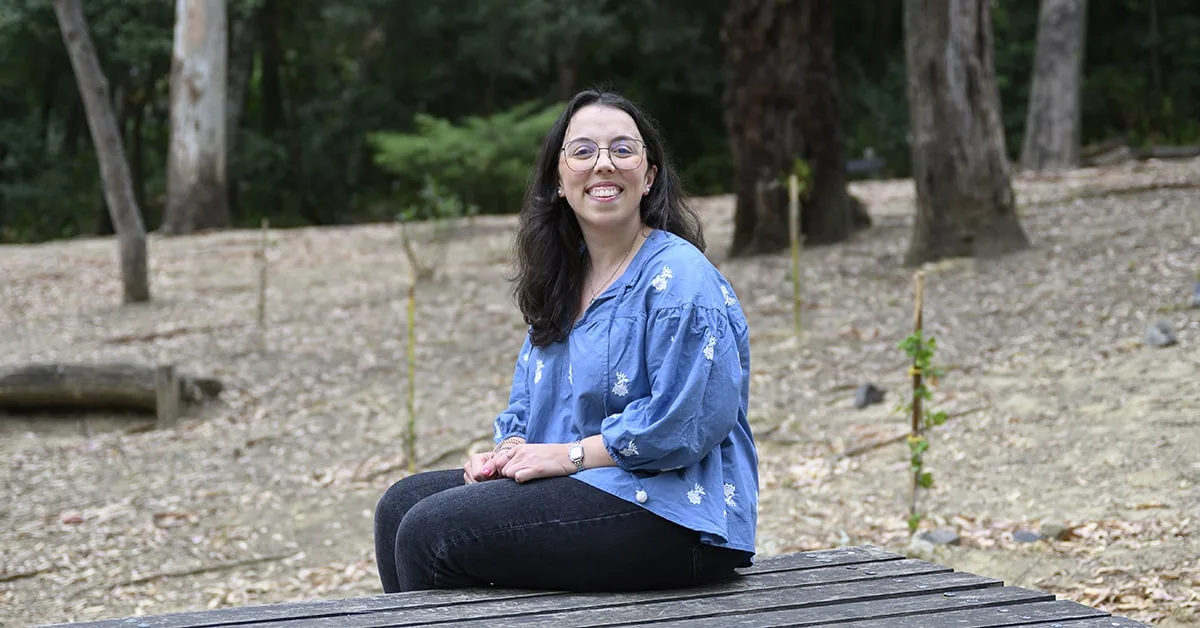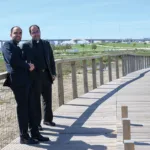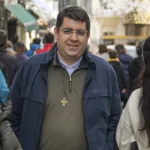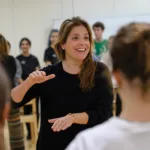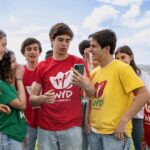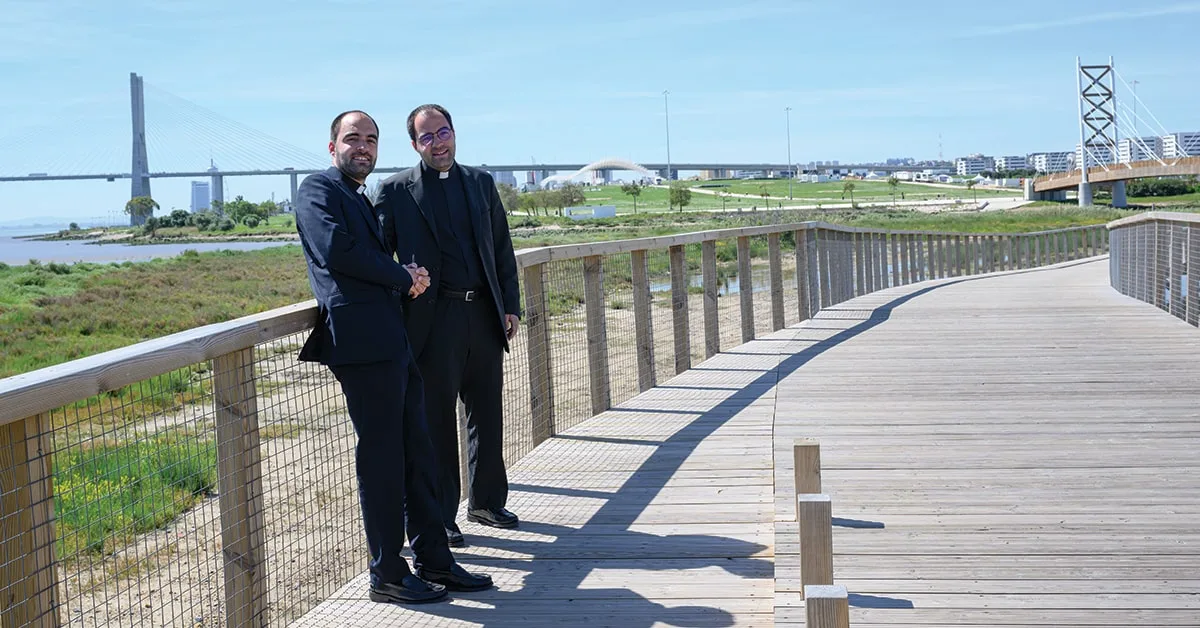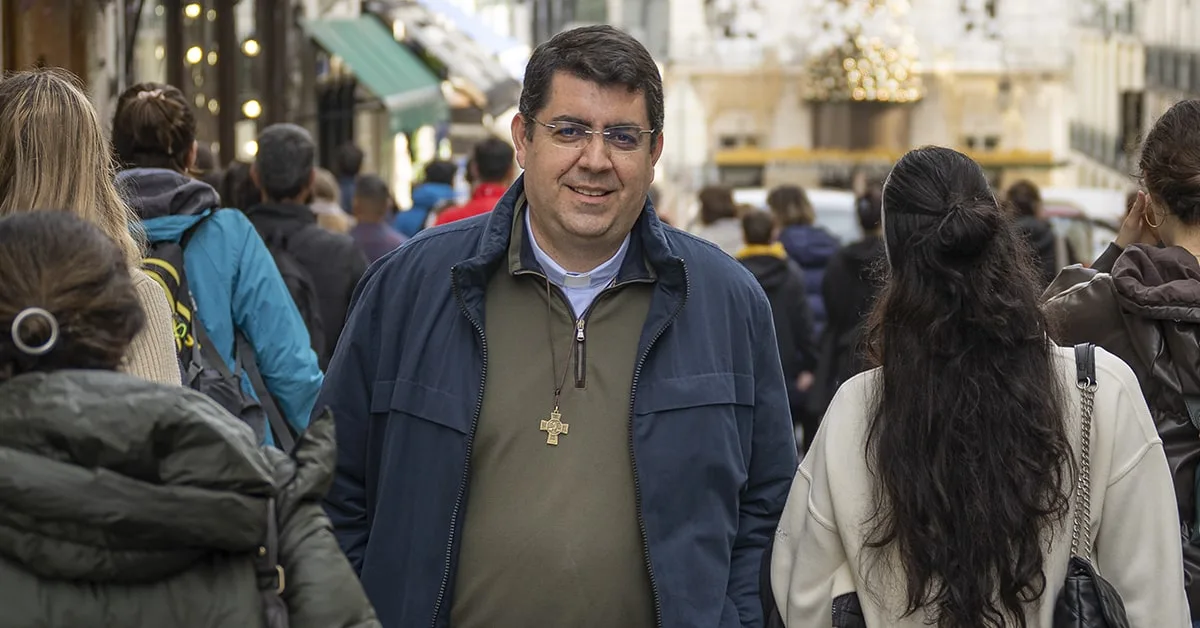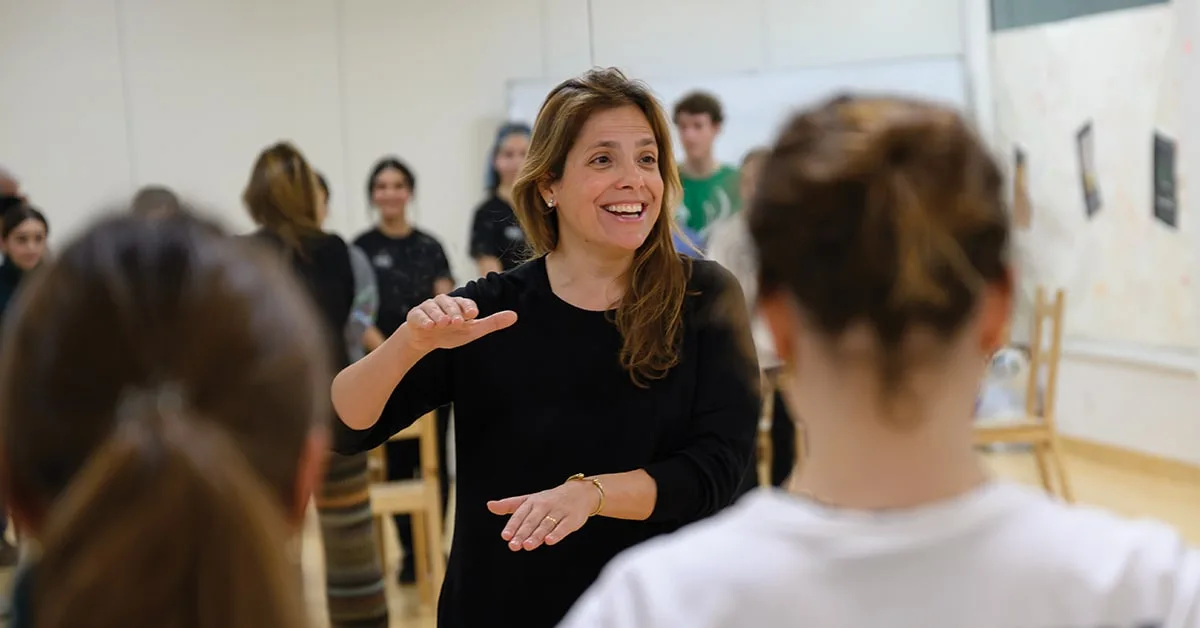Beatriz Viana has volunteered with children, in social and cultural institutions, in a communication project, serving the university, at the parish, at World Youth Day, and more recently, she collaborates with the National Department for Youth Ministry. These experiences have helped her grow and get to know herself better.
Your CV suggests that your academic training is extraordinarily eclectic. Is that so?
It happened that way. At the age of 10, I went to the Conservatory of Dance in Lisbon, then attended Liceu Camões for secondary education, where I studied Latin and Literature, and for my degree, I chose Communication Sciences. I’m now about to defend my Master’s dissertation in Performing Arts. It’s interesting how all the choices I’ve made have led me to communication: artistic, literary, people-oriented, for people, telling stories.
Today, relationships are mostly virtual. Does the “communication language” underpinning your academic background tend to counter this trend?
Nowadays, we are constantly bombarded with information from a device we hold in our hands; we no longer have to wait for the news hour on television… and so, there might be a tendency to be solely in the virtual realm. However, since language is primarily something individual (of the individual), I believe contact comes first. Of course, in my daily life, to make my work reach more people, I have to be online, but I am very much a “people person,” so I go against the trend.
Your CV mentions volunteering experiences. Would you like to tell us about them?
My father always told me that the most important thing is to use our time in the best way and to feel useful. So, when I was still in secondary school, I started by volunteering at a nursery in Adroana, where I helped for two weeks during the summer holidays. Later, in university, I gained experience in some social and cultural institutions of the Cascais City Council. Throughout my undergraduate studies, I was a collaborator on an online news site, Espalha-Factos, through which I attended numerous performances and wrote about them. Also, during my time in Communication Sciences, I had the opportunity to present the university to secondary school students, in schools and at Futurália. I always mention these experiences because they made me grow and understand what I enjoyed doing. We learn a lot about ourselves when we put ourselves in service.
You were a volunteer at WYD Lisbon 2023. What impact did it have on you?
I was responsible for WYD in the Parede Parish, to which I belong. In April 2021, I was invited to join the Organising Committee, and the goal was to bring WYD to the community and mobilise the entire community for the event. We did a bit of everything: coordinating, forming a communication team, being messengers, distributing water and food, singing, organising events, supporting pilgrims and volunteers, transporting crosses. It was a very enriching experience. Throughout this time, I managed a team that was constantly changing, which was a great professional asset. There were, of course, moments of anxiety, but since it was He who challenged us, whenever we doubted that it would be possible, we were more ready and deeply able to set aside our doubts and believe it would be “whatever God wanted.” Everything materialised and turned into genuine joy. One of the best things I take from WYD is lifelong friends. How blessed it is to work with our friends on the greatest challenges we face. Thank you to each one!
Do you belong to any Catholic movement or group? Was your spirituality strengthened by WYD?
In recent years, I was, along with my friend Branca Encarnação, responsible for the Youth Group at the parish. After WYD, I joined the Youth Team of the Cascais Vicariate, which we named “Todos Ao Cubo” (“All To the Cube”), and more recently, in February this year, I joined the team of the National Department for Youth Ministry (DNPJ). After WYD, I stepped down from coordination because I believe it was time for the older members of the group to take the reins. And, of course, this allowed me to embrace other challenges. So, I can confidently say yes: my faith was greatly strengthened by WYD, as I want to continue being a witness to the Living Christ and bringing His Word to everyone, everyone, everyone.
Are the youth from Parede and Murtal, whom you mentioned, still united in the spirit of WYD, or is the seed planted struggling to germinate?
Perhaps a bit shy, but the fruits are emerging, among a choir of very enthusiastic youth, scout groups gaining more members, and younger catechists. Clearly, when you host more than five thousand pilgrims, it is impossible to remain indifferent, and the youth came together with the community in an incredible union! Returning to daily life, I believe they find it difficult to encounter Him. However, that is why we are here, to accompany them.
Regarding WYD, could you tell us about the International Youth Ministry Congress that recently took place in Rome, in which you participated?
The congress took place from 22 to 26 May in Rome, with around 300 young people from over 100 countries. I went to represent Portugal as a member of the DNPJ team. It was an amazing experience! Throughout the days, the topics discussed were very important and current: youth ministry in the digital age, which must be a mission land, post-pandemic youth living through these times of war and conflict, the welcoming and formation of young people in Youth Ministry, among others. I highlight an idea I heard there that digital and social media should not be just for publicising events and showing photos, but should be a field for evangelisation, complementing and accompanying our journey in faith.
You just mentioned the topic of Youth Ministry in the digital age. The idea is interesting, considering that the Salesians believe that the new playground for Schools is the digital one. What do you think?
I didn’t grow up with a mobile phone. Now the reality is different, a digital playground, as you refer to it, requires more vigilance since everything exists digitally: the good and the bad, the right and the wrong. It doesn’t mean it’s entirely harmful, but sometimes it seems that banalisation occurs and that everything is allowed… It can’t be like that.
Was WYD discussed at the Congress? Did you feel that the enthusiasm remains?
Yes, I felt it. I was even moved! We must feel extremely proud of what we did and offered to the whole world, but we must also take everything and get to work, taking this enthusiasm, in the true etymological sense of the word, further.
You belong to the DNPJ Team, an organisation of the Portuguese Episcopal Conference. Is the spirit of WYD felt at the top levels too?
Yes, and the team is working to bring that enthusiasm to the entire country. Everything we’ve been doing is thinking about the various Portuguese youth, involving them so they can evolve, learn, and bring the announcement of the Living Christ. At the moment, we are moving from one WYD to another: the World Youth Jubilee in Rome in 2025. May this also be a great moment of enthusiasm for the young people of the whole world.
Are young people the hope of the Church and humanity, as Pope Francis says? What dreams do you have for the future?
I truly believe that young people are the hope of the Church and Humanity. Of course, we cannot build the Church and the future without teachings, because no one is born knowing, right? We must build bridges, reach out, learn from the elders and those who know, be humble and admit our mistakes. Be better in what we set out to do and be. I believe young people can use what they learn and their creativity for a better world and a Church that goes out, is concerned, sensitive, and able to listen. May we always continue to bring the Living Christ and be this Youth Church that is not asleep, spreading this missionary joy of the One to whom everything converges and from whom everything emanates.
Published in the Salesian Bulletin No. 604, July/August 2024

